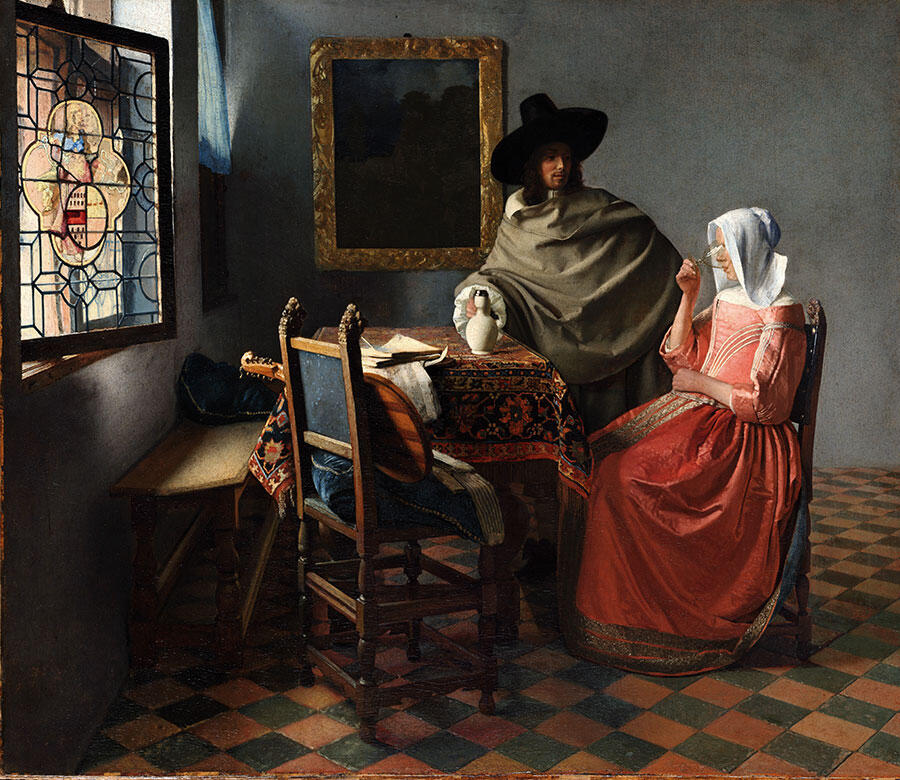The Best Shows to See in Europe This Spring
From a groundbreaking Vermeer exhibition at Amsterdam’s Rijksmuseum to an epic Florentina Holzinger performance at Berlin’s Volksbühne
From a groundbreaking Vermeer exhibition at Amsterdam’s Rijksmuseum to an epic Florentina Holzinger performance at Berlin’s Volksbühne

Vermeer
Rijksmuseum, Amsterdam, the Netherlands
10 February – 4 June

The Rijkmuseum’s exhibition of paintings by Johannes Vermeer, opened in early February to great acclaim, is unprecedented in its scope. Of the artist’s modest oeuvre of around 35 known paintings, 28 are on show here, on loan from galleries all over the world. Three from New York’s Frick Collection are on loan for the first time ever during the museum’s temporary closure for renovation. What results is an exhibition not only comprehensive in its scope, but also enlightening and enriching in its use of new biographical research and advanced scanning technologies to subtly shift received notions about Vermeer’s life and work. – Lua Vollaard
Irina Lotarevich
Sophie Tappeiner, Vienna, Austria
27 January – 11 March

For her second exhibition at Sophie Tappeiner in Vienna, Lotarevich zooms in on the relations between bodies – human as well as animal – and their urban shelters. ‘Zooming’ is the operative word here: like a camera, the artist homes in then back out again. Subtly engaging, Lotarevich’s works play cleverly with scale to render her sleek metal sculptures wittier than their minimal aesthetics might initially suggest. – Kathrin Heinrich
Galli
NoguerasBlanchard, Madrid, Spain
11 February – 1 April

The late 1970s and ’80s in German painting were marked by expressive gesture and figuration, yet its protagonists were almost entirely men and its mythology decidedly masculine. The work of the artist known as Galli – canvases characterized by ferocious, sometimes macabre visions – was largely overlooked despite its formal congruity with the so-called neue wilde movement. Now being reassessed in the context of a queerer and more nuanced history of the West German art scene of the time (Galli also acted in Ulrike Ottinger’s freewheeling film Freak Orlando, 1981) as well as contemporary crip theory (she is a person of short stature due to a genetic condition), her work in this exhibition at NoguerasBlanchard’s new space, which includes large works in acrylic and tempera on cardboard as well as smaller drawings, is a shifting lexicon of body and consciousness. – Max Andrews
‘Matter. Non-Matter. Anti-Matter.’
ZKM, Karlsruhe, Germany
3 December 2022 – 23 April 2023

Today, as technology becomes obsolete at an ever-faster pace, and essential components from artworks, such as the once-ubiquitous projector bulb, are threatened with discontinuation, conservation is an increasingly urgent issue. With its two virtual models that will remain accessible long after the current exhibition ends, ‘Matter. Non-Matter. Anti-Matter’ shines through with new methods for keeping curatorial relations and artistic creations afloat. – Ben Livne Weitzman
Florentina Holzinger
Volksbühne, Berlin, Germany
Throughout March

I am interested in things that people maybe see as ‘high art’, like ballet, but also in so-called ‘low art’, like the circus. In my research for ‘Apollon’, I realized that the sideshow world and the performance art world employ some of the same actions. It was interesting for me to think about the rules governing each context. For example, in the sideshow, it was very important that the action be entertaining: whereas in an art gallery, it sometimes seems like the opposite is true. Ultimately, I see it as my responsibility to entertain the audience. Not so they switch off their minds, but precisely to allow them to look at more difficult things. – Florentina Holzinger
Main image: Florentina Holzinger, ‘TANZ’, Battersea Arts Centre, London. Photograph: Eva Würdinger















